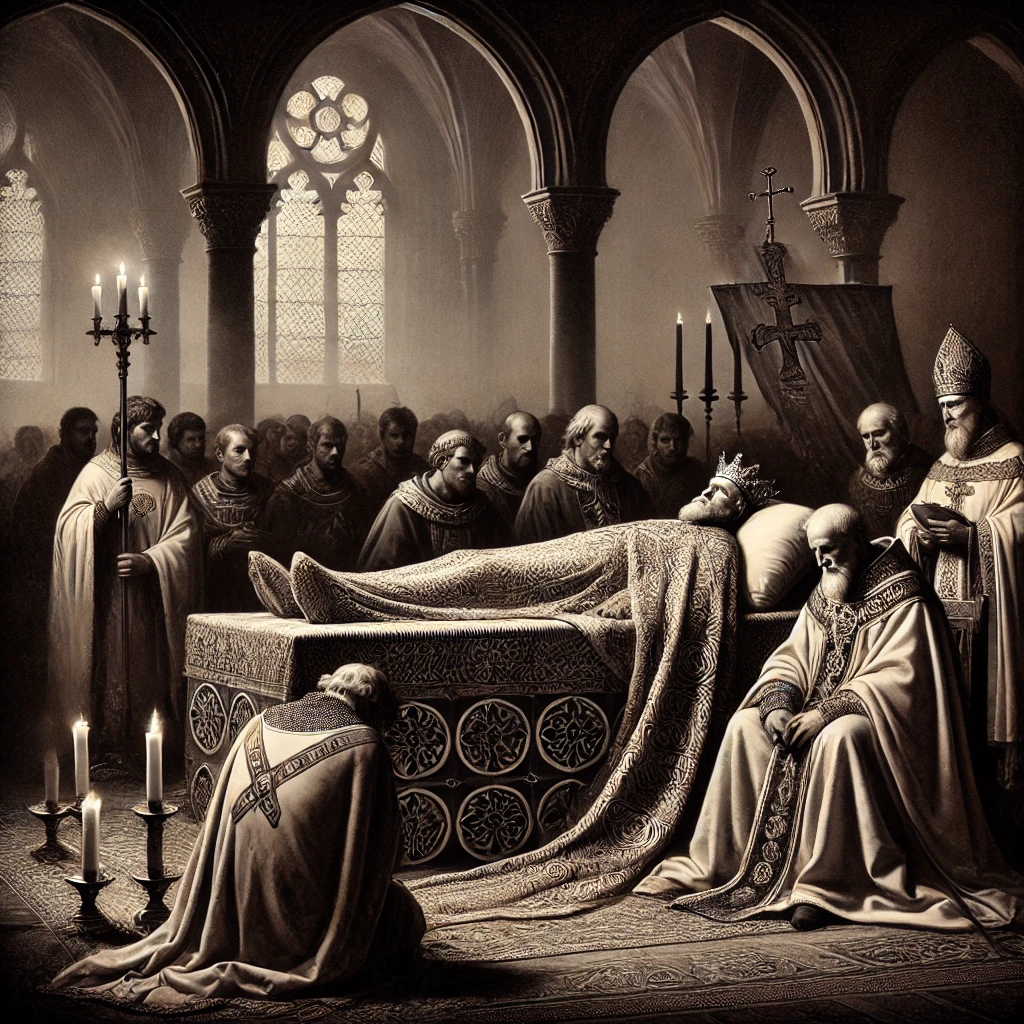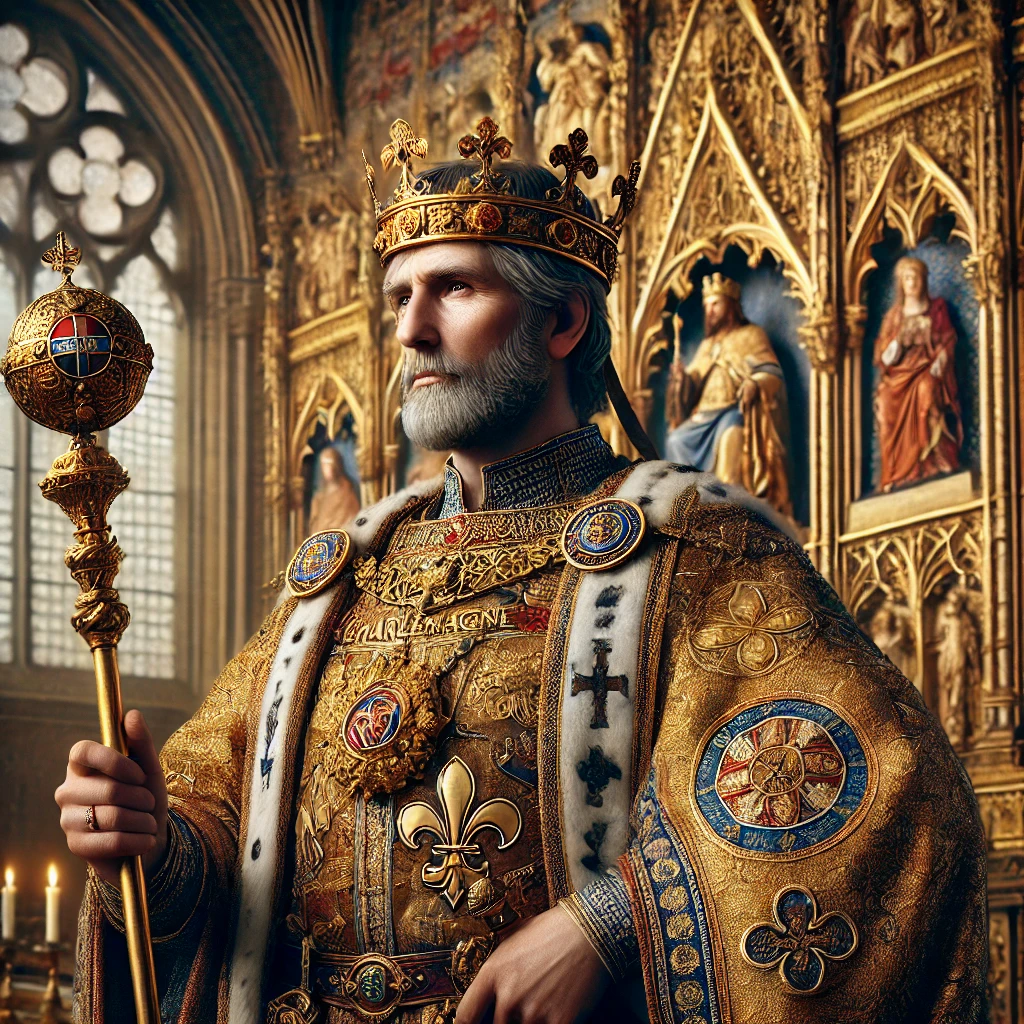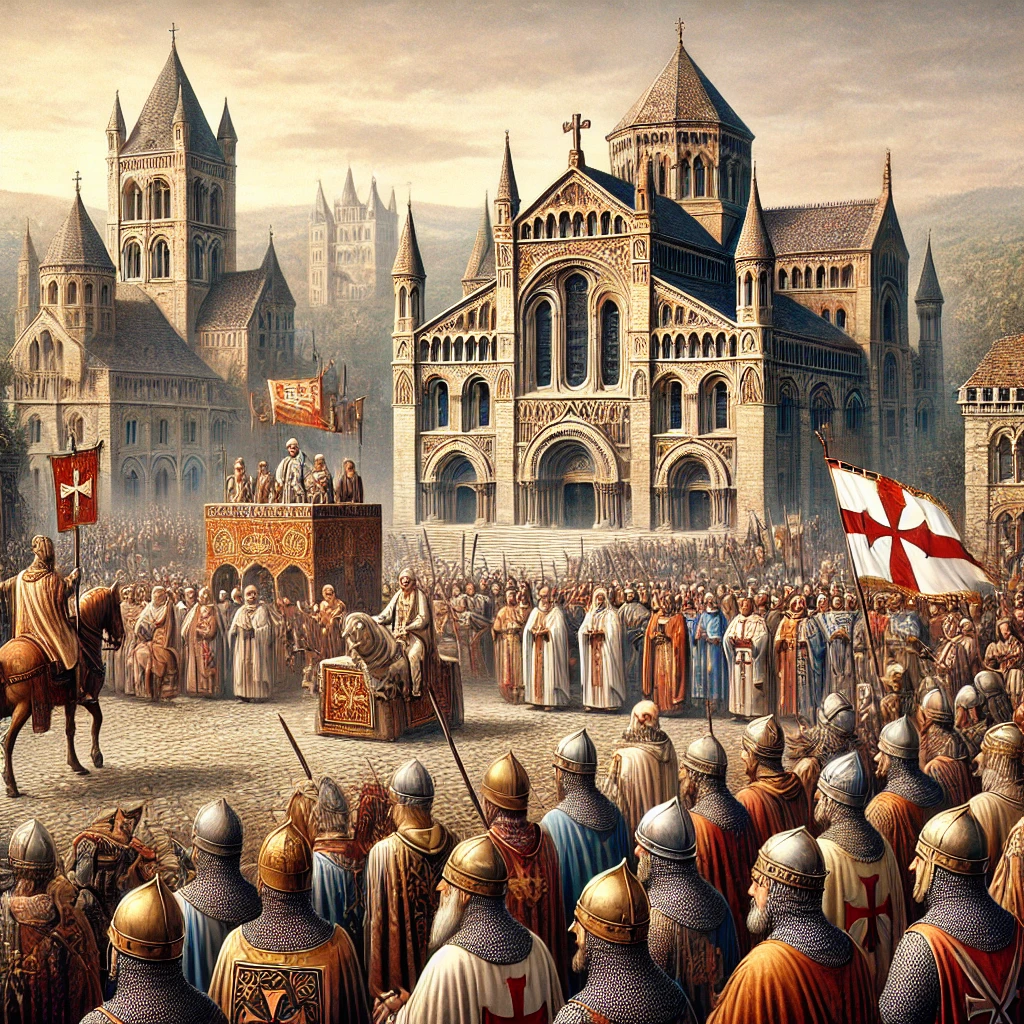On January 28th, 814, Charlemagne, the legendary King of the Franks and Emperor of the Romans, passed away. His death marked the end of an extraordinary reign that left an indelible mark on European history. Known as “Charles the Great,” his leadership, military conquests, and cultural reforms shaped the trajectory of the medieval period and laid the foundation for modern Europe.

The Rise of a Legendary Leader
Charlemagne ascended to the Frankish throne in 768, inheriting a fragmented kingdom. Through his military prowess and strategic alliances, he expanded his domain, uniting much of Western Europe under his rule. In 800, Pope Leo III crowned Charlemagne Emperor of the Romans, solidifying his authority and reviving the concept of a unified Christian empire in the West.
Under his reign, Charlemagne embarked on a mission to consolidate power, protect Christendom, and promote cultural advancement. His efforts to subdue rebellious territories and expand the Frankish Empire not only established him as a formidable ruler but also set the stage for the development of medieval Europe’s political landscape.

A Cultural and Educational Renaissance
One of Charlemagne’s most enduring legacies was his promotion of education and cultural revival, often referred to as the Carolingian Renaissance. Recognizing the importance of knowledge, he invited scholars from across Europe to his court in Aachen. These intellectuals preserved and copied classical texts, reformed Latin grammar, and laid the groundwork for the preservation of Western literary and philosophical traditions.
Charlemagne also reformed the church, standardizing religious practices and improving clerical education. His emphasis on learning and the arts significantly impacted medieval society, fostering an environment in which knowledge and faith could coexist and flourish.
The Lasting Impact of Charlemagne’s Reign

Charlemagne’s death in 814 left a void that his successors struggled to fill. Despite the eventual fragmentation of his empire, his vision of a unified Europe influenced the development of nation-states and the idea of a common European identity. His efforts to bridge diverse cultures and religions remain a cornerstone of his legacy.
The Holy Roman Empire, established decades after his death, sought to emulate his model of governance, emphasizing the union of secular and spiritual authority. Even today, Charlemagne is remembered as the “Father of Europe,” a symbol of unity and progress during a turbulent era.
